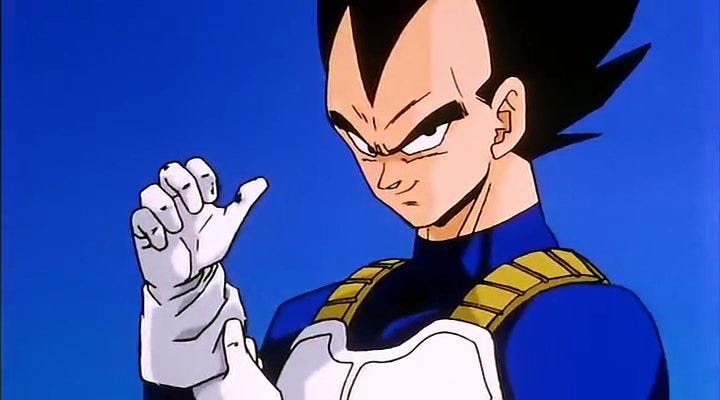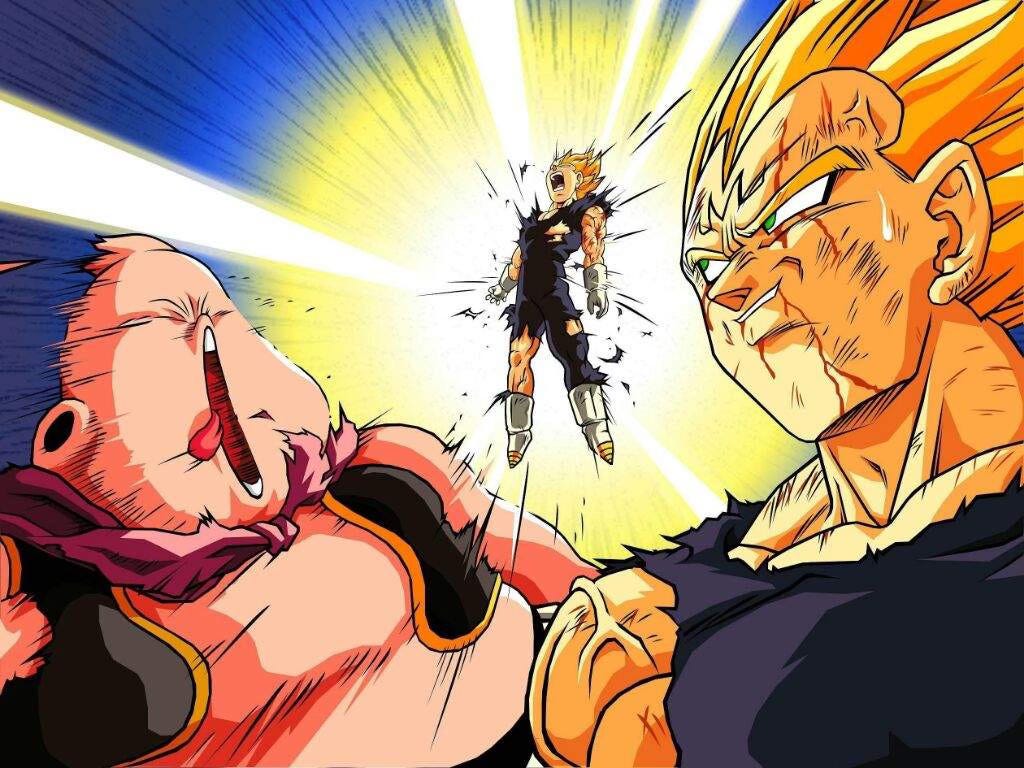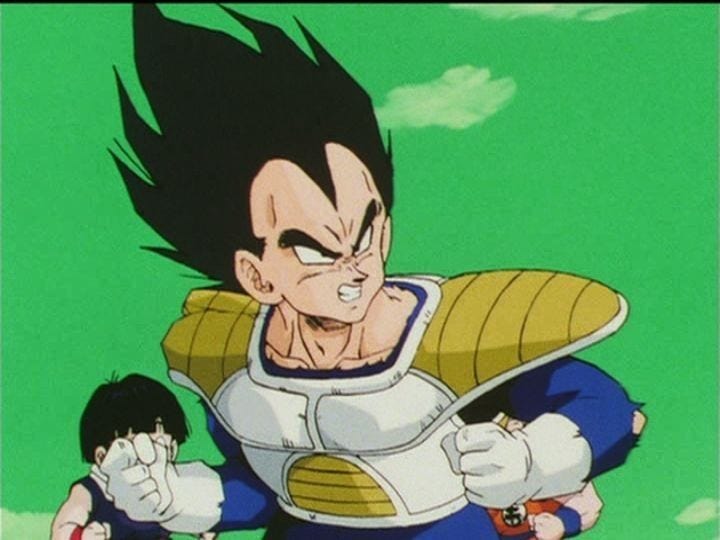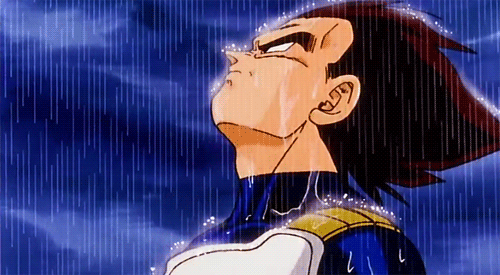The Evolution of Vegeta: How Fan Demand and Toriyama’s Vision Shaped the Saiyan Prince
From Villain to Anti-Hero, Vegeta’s Journey in Dragon Ball Redefined Character Arcs
In Dragon Ball, the path from villain to hero has been explored in various ways, but no character embodies this journey quite like Vegeta. Introduced as an unyielding, prideful warrior, Vegeta was originally intended to be a short-lived antagonist in Goku's story. However, as his popularity surged among fans, series creator Akira Toriyama was inspired to expand Vegeta's role, gradually transforming him from a ruthless villain into one of the franchise’s most layered characters. Through interviews and insights shared over the years, Toriyama has opened up about this evolution and how it ultimately reshaped Dragon Ball.
Vegeta’s Introduction: A Cold and Calculated Saiyan Prince
When Vegeta first appeared in Dragon Ball Z, he was the embodiment of Saiyan ruthlessness and pride. Arriving on Earth with Nappa, Vegeta sought the Dragon Balls to gain immortality, positioning him as one of the most threatening villains Goku and his friends had ever faced. His cold demeanor, immense power, and relentless ambition marked him as a character with seemingly little room for redemption. Toriyama had crafted him as the ultimate Saiyan warrior—loyal to no one but himself and his pride.
However, Vegeta’s interactions with Goku revealed another side of him, one driven by jealousy and a desire to prove his superiority. Even though he was an antagonist, fans quickly connected with Vegeta’s struggle. Unlike previous villains, Vegeta wasn't simply evil for the sake of it; his motivations and character depth gave him a complexity that intrigued viewers and helped him stand out from the typical one-dimensional villains.
The Surprising Popularity of Vegeta
Vegeta's initial role as a villain might have been short-lived if it hadn’t been for the fans. Toriyama admitted in an interview with Shōko Nakagawa that he had originally envisioned an end for Vegeta after his role as an antagonist. He said, “I had thought about bringing an end to [his story] as just a villain, but as I was writing, I felt that his villainous...warped straightforwardness was unexpectedly interesting.” This "warped straightforwardness" refers to Vegeta's rigid code of honor and his unyielding pride, traits that make him both admirable and flawed.
Toriyama’s reflections on Vegeta’s character marked a turning point. The positive fan response prompted Toriyama to keep him in the story, and instead of concluding his arc as a defeated villain, he allowed Vegeta to begin a journey of redemption. The Saiyan prince became an anti-hero who wrestled with his dark past while begrudgingly becoming a protector of Earth. Toriyama also revealed that, while initially disliking Vegeta for his cruelty, he grew to appreciate him as a character, finding him “extremely helpful to have around” in the series.
Vegeta’s Evolution in the Series
With Toriyama’s shift in perspective, Vegeta began to undergo significant character development. During the Namek Saga, he formed temporary alliances with the Z Fighters, revealing a sense of pragmatism and even vulnerability. His rivalry with Goku, which had previously been defined by malice and jealousy, began to take on new dimensions. He was no longer merely out to defeat Goku but to surpass him on a personal level. This rivalry became the foundation of his character arc, providing Vegeta with a purpose that extended beyond destruction and conquest.
As the series progressed into the Android and Cell sagas, Vegeta’s character took on a more complex and relatable struggle. Despite his attempts to isolate himself and remain superior, he couldn’t ignore his evolving connection to Earth and the people around him, including Bulma and their son, Trunks. His choice to settle on Earth and build a family showed that he was more than a warrior fueled by revenge and pride; he was capable of change and growth, even if it clashed with his Saiyan instincts. This transformation, while subtle, was a testament to Toriyama’s willingness to allow Vegeta to evolve organically based on fan interest and his own growing fondness for the character.
A Legacy of Redemption and Rivalry
One of Vegeta’s most memorable character moments occurs during the Majin Buu Saga when he allows himself to be possessed by Babidi to reawaken his old evil nature. This arc illustrated Vegeta’s internal conflict between his pride as a Saiyan warrior and his loyalty to his family and newfound home. In the end, his sacrifice to save his family and the Earth marked a turning point, showcasing how far he had come from the villain he once was. The character’s popularity soared even higher as fans witnessed his internal battle and redemption, proving that his transformation resonated deeply with audiences.
Toriyama’s decision to let Vegeta grow beyond his original purpose as a villain had a lasting impact on Dragon Ball. Vegeta’s rivalry with Goku became one of the franchise’s defining relationships, symbolizing the duality of power and self-improvement. Unlike Goku, who sought strength to protect others, Vegeta’s pursuit of power stemmed from a need for redemption and self-identity. This contrast made their rivalry not just a physical one but a philosophical exploration of what it means to grow and improve as a person.
Vegeta’s transformation from a villain into a hero was as much a reflection of fan demand as it was of Akira Toriyama’s evolving approach to storytelling. Initially conceived as a short-term antagonist, Vegeta’s complex personality and motivations resonated so strongly with fans that Toriyama found himself inspired to give the Saiyan prince a far richer role. Through interviews, Toriyama has shared his surprise and eventual fondness for Vegeta, revealing how his unplanned evolution became a cornerstone of the Dragon Ball series.
In retrospect, Vegeta’s journey has become a defining example of character development in anime, one that continues to inspire fans worldwide. From his prideful beginnings to his selfless sacrifices, Vegeta embodies the themes of redemption, growth, and rivalry. His story, born from an unexpected connection with fans, remains one of the most compelling aspects of Dragon Ball and highlights Toriyama’s flexibility and willingness to explore new depths within his characters.







